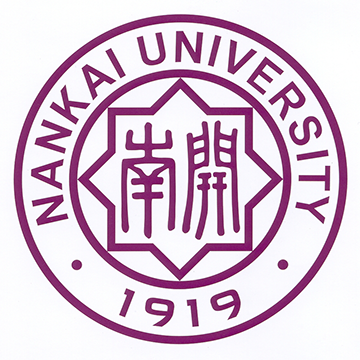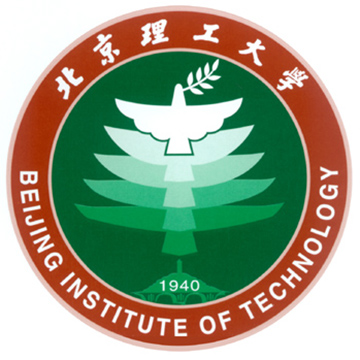
 Introduction
IntroductionFounded in 1952, Xi'an International Studies University (referred as theUniversity thereafter) is one of the earliest 4 foreign language institutions established in new China. The University changed its original name of Northwest College of Russian to Xi'an Foreign Language Institute in 1958 and Xi'an International Studies University in 2006. In 2010, the University becamedoctoral degreeconferringinstitution. In 2013, the University began to confer doctoral degree in foreign languages and literatures (Category I). In 2014, the University established a post-doctoral research station. In 2011, the University was listed as one of the high-level key universities by Shaanxi Provincial Government that needs to be developed with priority. After three decades, the University has transformed into a comprehensive university that features foreign language education, andresearch in international humanities andsocial sciences, and offers programs primarily in humanities, with a balanced offering in liberal arts and science, economics and management, law, education and fine arts.
 About the Program
About the ProgramThe English major is a comprehensive discipline that focuses on the study of English language, literature, and culture, while also considering cross-cultural communication and practical applications. It not only cultivates solid language skills, but also emphasizes in-depth understanding of the society, history, and thoughts of English-speaking countries. It serves as a bridge connecting Chinese and Western cultures and is an indispensable fundamental discipline in the era of globalization. From Shakespeare's plays to contemporary Hollywood movies, from classical literature to online popular language, the study of the English major covers both the "form" of language and the "spirit" of culture, combining practicality with humanism.
 About Xi'an International Studies University
About Xi'an International Studies UniversityMultilayered System in Higher Education
The University has 23 departments/schools and offers 52 undergraduate programs, and master degrees for 4 disciplines in Category I, 53 disciplines in Category II, and 6 professional disciplines, as well as doctoral degrees in one Category I discipline and 13 disciplines in Category II, and one post-doctoral research station. The University recruit`s students from 37 countries and undertakes adult and non-academic education, preparation government-funded overseas study, and enterprises-commissioned training programs. The total enrollment is about 20,000, and among them 18,675 are full-time students.
Key Disciplines
The University now owns one featured program in foreign language and literature (Category I) and 3 key disciplines in Shaanxi Province, such as English language and literature, etc. The University offers 5nationallyfeatured programs including Russian and translation studies. English is a pilot program of national comprehensive reform for academic disciplines. The University now has 5 "brand-name" programs (including German and French, etc.) and 9 featured programs (including Japanese andaccounting, etc.) in Shaanxi Province, and 11 innovative experimental facilities for trainingtalents at both national and provincial level. Foreign language and literature programs ranked seventh nationwide in the third round of disciplinary assessment. The University declared 17 leading programs of Shaanxi Province in 2016.
Strengthened Quality in Faculty
The University has 846 full-time faculty members,among whom 356 hold senior professional and technical positions (42.08%); 329 have earned or are pursuing doctoral degrees (38.89%); 419 studied and worked aboard (49.53%). Eight enjoy special allowances from the State Council and funding from "New Century Talent Support Project" administered by the Ministry of Education. Twenty-six are entitled "experts with outstanding contribution to Shaanxi Province", "top talents in key field in Shaanxi Province" and "'three 5-year' talents in Shaanxi Province". There are 20 Fulbright senior visiting scholars and 55 foreign experts working on campus.
Excellence in Academics and Research
The University consists of 15 national and provincial teaching teams; 36 national and provincial excellent courses (or excellent open courses); and 3 national and provincial bilingual demonstrative courses. The University operates an array of research institutes and centers that are the key base for research in philosophy and social science in Shaanxi Provincial, such as Center for European and American Literatures, Center for Foreign Linguistics and Applied Linguistics, Center for Bilingual Dictionaries, and R&D Center for Teaching Resources. Sincetheadvent of 12th "Five-Year Plan", the University has undertaken 17 research projects for reform instruction, at provincial level or above, and won 13 awards, published 40 textbooks, and published 1030 research articles in the core journals. The Foreign Language Teaching andHuman Geography, both are issued by the University, have been recognized as "China's outstanding academic journals for international influence" and "China's most internationally influential academic journals" for consecutive years.
Frequent and In-depth International Exchanges
The University has signed agreements with 199 higher institutions and research institutions, both domestically and internationally, to jointly train bachelor, master, and doctoral students. It has established overseas practice bases in the United States, Japan, India and Thailand. The University has a Multilingual Base for International Promotion of Chinese Language (Xi'an) authorized by Hanban (Confucius Institutes Headquarters) and 4 Confucius institutes and Confucius classrooms overseas. The School of Central Asia offers programs specially for students from Central Asia students. "Sejong School" of South Korea, "Goethe-Institut" of Germany, and "Russian language and culture center" are housed on campus to promote their respective languages and cultures. The University has several training facilitates for candidates who are going to study oversea, including Training Center for Study Overseas authorized by the Ministry of Education, Center for China Scholarship Council Preparatory Education, and China (the Ministry of Education) Overseas Training Service Center. In the past three years, the University has sent out 220 visiting scholars and 2578 students aboard, and recruited 2,471 international students.
Complete Campus Facilities
The University covers an area of 1593 mu (1,062,000㎡), with a construction area of 801,000㎡. There are 49 language labs and 383 multimedia classrooms (30 are "smart classrooms"), and 28 specialized laboratories such as media lab, and simulation center for international finance, investment, and trade. The campus library has a collection of 1,570,000 hardcopies, 5,100,000 e-Books, and 42 electronic databases (23 databases cover 11 foreign languages). The entire campus is covered with Wi-Fi network with 6G export bandwidth.
 Accommodation
Accommodation
For Summer Session Chinese Language Program
| No.3 Apartment for international students | Types of rooms | Beds, bookcases, Desks, wardrobes | Rent fee/day |
| Double Room | Bathroom, radiator, shower bath, TV, air-conditioner, 201 card phones | RMB 40/bed | |
| Single Room | RMB 80/room | ||
| Public Facilities | Card phones, wash machines, refrigerators | ||
For students who are registered more than 6 months:
|
Room Facilities |
Price |
|
|
Double |
Single |
|
|
Bathroom, Heating, Air conditioner (North building) |
RMB40/person/day |
RMB80/person/day |
|
Bathroom, Heating, Air conditioner (South Building) |
RMB40/person/day |
RMB80/person/day |
|
Facilities in the Building: Refrigerator and telephone for public use; laundry service with charge; TV-set for rent. |
||
Note: The accommodation fees above are for long-term students. Fees maybe higher for short-term students.
Facilities
on campus
Libraries: library & reference room of the University
Table tennis room: exclusively open to students
Dining halls: for foreign and Chinese teachers and students respectively
Network: classroom in which DDN network joints are provided
Facilities within an easy access
 Fees
Fees Admissions Process
Admissions Process  Entry Requirements
Entry Requirements1. Non-Chinese citizens holding valid foreign passports and having an educational qualification equivalent to a high school diploma in China or above;
2. Age range: 16 - 30 years old (Applicants under the age of 18 must provide legal documents from their guardians in China);
3. For applications for non-Chinese language majors, one must pass the HSK-4 test and the professional entrance examination.
 Application Materials
Application Materials1. Professional Study Application Form (available for download online or to be picked up at the office)
2. High School Diploma and Transcript
① Original in Chinese or English with the school's seal and signature, or a notarized translation in Chinese or English.
② For recent graduates, the original expected graduation certificate issued by the school can be provided first.
3. Copy of HSK Certificate
4. Copy of Passport
5. For applicants under 18 years old, legal documents from the guardian in China must be provided.
6. For applicants applying for art-related majors in the art school, the original of recent works must be provided.
 Reviews
Reviews Scholarship
Scholarship

Beijing Institute of Technology
Tuition
Start Date